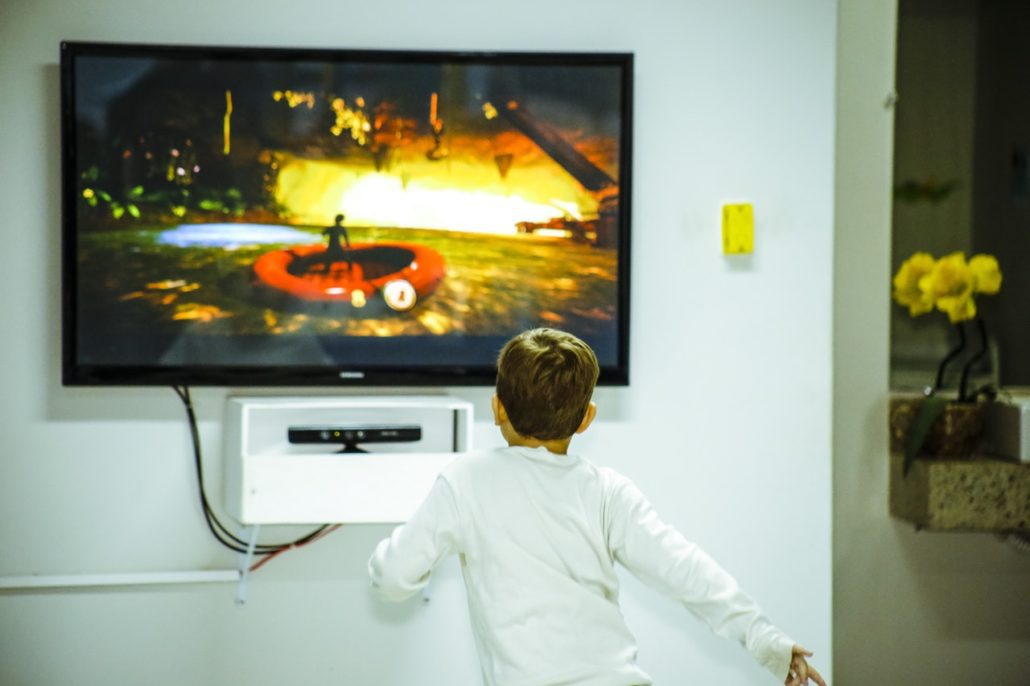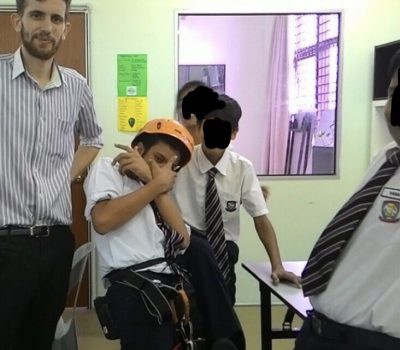


Our team sorts through all blog submissions to place them in the categories they fit the most - meaning it's never been simpler to gain advice and new knowledge for topics most important for you. This is why we have created this straight-forward guide to help you navigate our system.


And there you have it! Now your collection of blogs are catered to your chosen topics and are ready for you to explore. Plus, if you frequently return to the same categories you can bookmark your current URL and we will save your choices on return. Happy Reading!
Children today are growing up with iPads, Nintendo’s, PlayStations, X-box’s and iPhones. They are the generation of ‘screenagers’. But what does this mean to your child’s development? Sue Atkins explains..

Well, it means that your child will:
This will naturally have an impact on your child’s thinking and learning. It is also something schools will have to address in the way they teach children in the future.
For you, it’s important to relax and just recognize and understand the differences from when you were growing up.
Through their exposure to the on-line, on-screen and mobile evolving technology, our children are learning, and are being stimulated, at a much faster speed. They expect instant gratification.
I think it helps if you accept that there is no ‘right’ or ‘wrong’ – just ‘different’ from when you were young. But where you can make a difference, and redress this balance, is by controlling and limiting the time your children spend in front of their screens. Children need your guidance to nurture them through this new technology.
With their learning today being highly visual, you need to redress the balance by helping them to develop their auditory (hearing) and kin-aesthetic (feelings, actions and experiences ) abilities. Great games to play with your kids are charades, hospitals, post offices, shops and all sorts of make-believe activities to stimulate their imaginations and develop their use of language and vocabulary.
Any creative activity, from painting, cutting and sticking to photography, recording their own music, cooking, dancing, writing stories or playing a musical instrument will stimulate and increase their creativity and help counteract the passivity of sitting down playing on a screen. It will also develop their social skills and emotional literacy and will help you bond together if you also get ‘stuck in’ and play with them too.
By spending quality time playing with your children you are developing the ‘we’ mentality of a team that is so important for successful family life. You will be also developing their self-esteem and confidence.
Because your children are so used to their fast-paced and exciting technological world any activities that slow them down, unwind them and teach them to relax are also a great idea. So, listening to a story, listening to music, drawing, colouring, sewing or listening to relaxation
Good old-fashioned board games teach them patience, sharing, taking turns and camaraderie. They also develop their attention spans and allow them to follow through and finish an activity to the end. This teaches them a very important life skill – patience! So, get out the Monopoly, Operation or the science kits.
Help your child to develop a new hobby like fishing or judo, and help them to explore, become curious about the world in a proactive and balanced way. Guide, nudge and help them to develop their tenacity and perseverance.
Additional Resources
The Sue Atkins Appropriate Age and Stage Screen Time Checklist (FREE Resource)
Screenagers? Electronic Babysitters? How Much Screen Time is OK for your Kids? (Webinar)

The author

Read more

Read more

Read more

Read more

Read more

Read more

Read more

Read more


Are you looking for solutions? Let us help fund them! Nexus Education is a community of over 11,000 schools that come together to share best practise, ideas and CPD via online channels and free to attend events. Nexus also offers funding to all school groups in the UK via nexus-education.com


Established in 2011, One Education is a company at the heart of the education world, supporting over 600 schools and academies. Our unique appeal as a provider is in the breadth and synergy of the services we offer, supporting school leaders, teachers and support staff to achieve the best possible outcomes for their pupils and staff.

School Space is a social enterprise that has empowered schools for over 12 years through their profitable and hassle-free lettings services. So far, they’ve generated over £5 million in revenue for education, helping to connect over 200 schools with their local communities.


Operoo is a school operations and productivity platform. We help thousands of schools and trusts to eliminate slow, expensive and repetitive tasks. Operoo helps schools streamline and digitise processes, drastically reducing the associated costs: From student pre-admissions, permission forms, payments, and school trips; to medical information and emergency contacts, incident reporting, staff agreements, and more in over 100 languages.


Unify is an online sales and marketing tool that allows users to create tailored personalised documents in moments.


There’s nothing special about the energy we sell. In fact, it’s exactly the same energy as all our competitors provide. But there is something special about the way we do it. Where others complicate the process, we simplify it. Where others confuse customers with hidden terms, we’re an open book. And where others do all they can to make as much money from their customers as possible, we do all we can to make as little. Everything we do, we do it differently. Our customers are a privilege. One we’ll never take advantage of.


Securus provide market-leading monitoring solutions to safeguard students on ALL devices both online and offline. We also offer a full monitoring service, where we carry out the monitoring on behalf of the school, freeing up valuable staff resources. From the smallest school to large MAT groups, Securus offers safeguarding protection for all!


As European leaders of Time Management Solutions, Bodet offer Lockdown, Clock, Bell & PA Systems. Harmonys, our five-in-one IP/PoE Bell System, provides a unique customisable lockdown or panic alarm alert. Melodys, a Wireless Bell System, is useful where wiring can be difficult.
